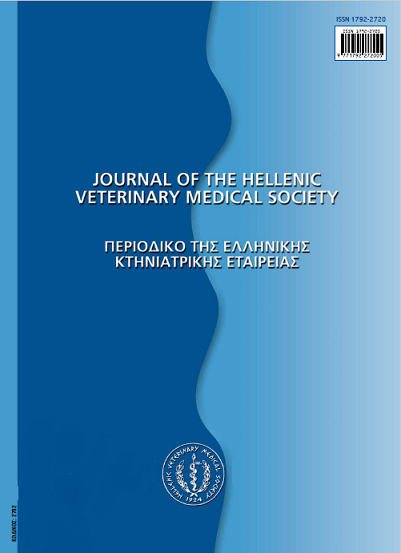Phylogenetic analysis of vaccinal and wild type European strains of Feline Calicivirus
Аннотация
Feline Calicivirus (FCV) infection is considered one of the most common upper respiratory tract infections in cats. In spite of widespread vaccination, FCV-related diseases still occur in the field and in some cases novel and more virulent FCV strains have been identified causing severe systemic diseases and death in cats. Besides persistently infected cats and the high resistance of FCV in the environment, genetic and antigenic variability of FCV is an important feature contributing to the widespread prevalence of these viruses. As in most of RNA viruses, mutations frequently occur during FCV replication, which may result in genetic changes that could allow escape from host immune responses. Therefore, this study was designed to get an insight into the diversity of recently isolated European FCV strains. In total, 83 FCV isolates were randomly selected from diagnostic samples from Austria, Germany, United Kingdom and Italy, from 2000 to 2005. The isolates were propagated in CRFK cells and tested for the presence of feline herpesvirus (FHV) by PCR. Forty-nine (49) out of the 83 tested FCV isolates were viable and free of FHV DNA. The hypervariable region of the FCV capsid gene was amplified by RT-PCR, sequenced and plotted in a phylogenetic tree together with published sequences. Based on the sequenced region showing >20% diversity on the nucleotide level, 21 (5 Austrian, 7 German, 6 British and 3 Italian isolates) different FCV strains were identified. As all Italian strains came from South Italy, it's not surprising that these strains were much closer related than the FCV strains from the other countries. Although most of the South Italian strains clustered together in the phylogenetic tree, a clustering of the FCV strains, based on the country they came from, was not observed. These results indicate that the evolution of the FCV strains is totally random and not influenced by regional differences.
Article Details
- Как цитировать
-
RAUE, R., KANELLOS, T., KOLIGAS (Μ. ΚΟΛΥΓΑΣ) M., & XYLOURI (Ε. ΞΥΛΟYPH) E. (2017). Phylogenetic analysis of vaccinal and wild type European strains of Feline Calicivirus. Journal of the Hellenic Veterinary Medical Society, 59(4), 332–340. https://doi.org/10.12681/jhvms.14967
- Выпуск
- Том 59 № 4 (2008)
- Раздел
- Research Articles
Authors who publish with this journal agree to the following terms:
· Authors retain copyright and grant the journal right of first publication with the work simultaneously licensed under a Creative Commons Attribution Non-Commercial License that allows others to share the work with an acknowledgement of the work's authorship and initial publication in this journal.
· Authors are able to enter into separate, additional contractual arrangements for the non-exclusive distribution of the journal's published version of the work (e.g. post it to an institutional repository or publish it in a book), with an acknowledgement of its initial publication in this journal.
· Authors are permitted and encouraged to post their work online (preferably in institutional repositories or on their website) prior to and during the submission process, as it can lead to productive exchanges, as well as earlier and greater citation of published work.



